Boost Your Deck Bids – Request a Precision Estimate!
- Accurancy
- Efficiency
- Transparency
- Customization
- Time Saving
- Professionalism
- Cost Control
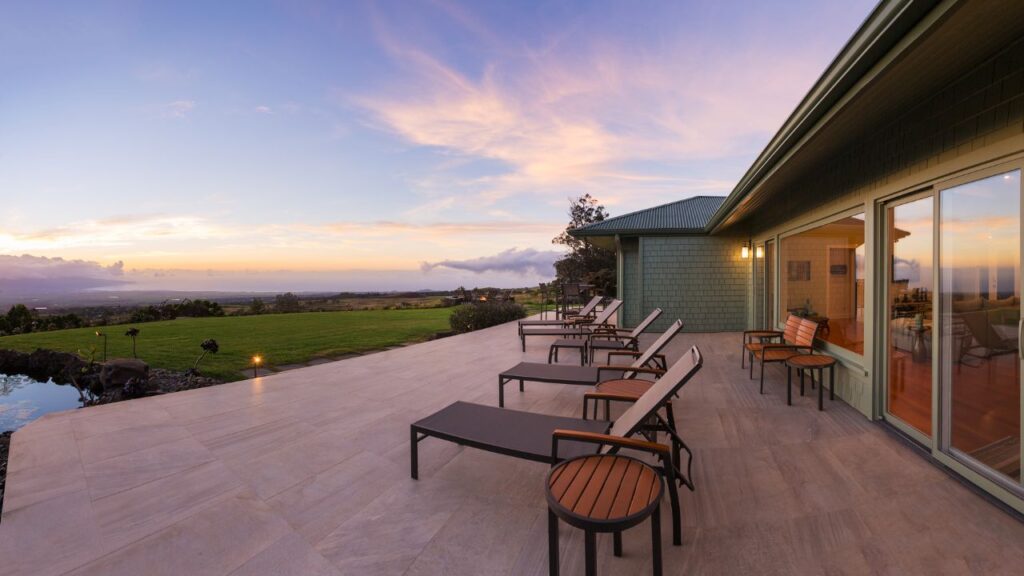
Building a deck averages $20 to $50 per square foot. Costs vary based on factors like size and materials. Larger decks and premium materials contribute to higher expenses. Design complexity, added features, and local building codes also impact costs. Homeowners should obtain detailed quotes from contractors, considering preferences and long-term maintenance.
The size of your deck is a fundamental factor influencing costs. Larger decks inherently require more materials and labor, contributing to a higher overall expense. However, it’s essential to strike a balance between size and functionality to ensure your deck meets your needs without unnecessary costs.
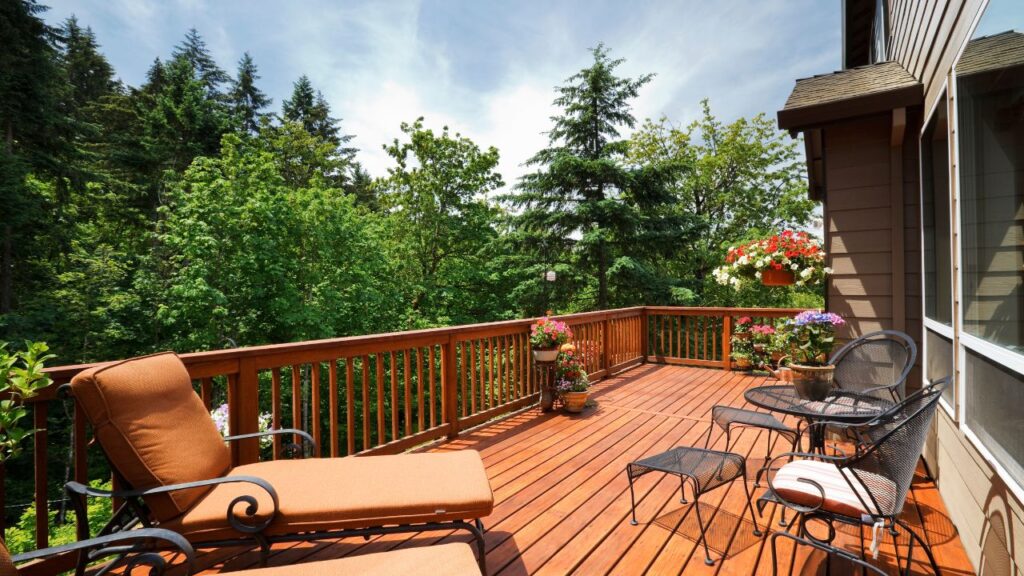
The materials chosen for your deck play a pivotal role in cost determination. Traditional wood, composite, and PVC are popular choices, each with its unique characteristics and associated price points. Understanding the pros and cons of each material is crucial for making informed decisions aligned with your budget and preferences.
Labor costs can vary significantly based on geographical location, the complexity of the project, and the skill level of the workforce. While opting for professional installation ensures quality craftsmanship, it often comes with a higher price tag. Homeowners should consider these factors when budgeting for their deck project.
Incorporating additional features into your deck, such as built-in seating, lighting, or a pergola, adds both aesthetic appeal and functionality. However, these enhancements contribute to increased costs. Careful consideration of the necessity and budgetary implications of additional features is essential to maintain financial prudence.
Decks come in a wide variety of sizes, with the most popular being 16’x20’ or 320 sq.ft. However, decks can vary significantly in size, depending on your available space and requirements. Your chosen size may be determined by the available area or influenced by desired features or planned layout.
Since decks are often priced per square foot, the larger the deck, the higher the total costs, irrespective of style or materials. Thus, the expense of constructing a small deck will typically be lower than that of a larger one. Here are average cost ranges for some common sizes:
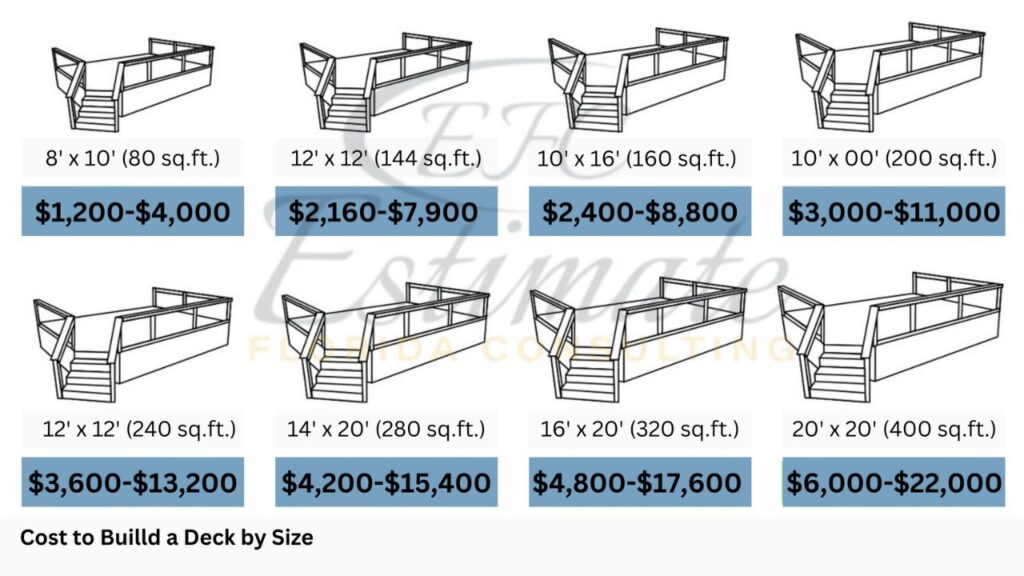
Dimensions | Average Cost Range (Installed) |
8’ x 10’ (80 sq.ft.) | $1,200 – $4,400 |
12’ x 12’ (144 sq.ft.) | $2,160 – $7,900 |
10’ x 16’ (160 sq.ft.) | $2,400 – $8,800 |
10’ x 20’ (200 sq.ft.) | $3,000 – $11,000 |
12’ x 20’ (240 sq.ft.) | $3,600 – $13,200 |
14’ x 20’ (280 sq.ft.) | $4,200 – $15,400 |
16’ x 20’ (320 sq.ft.) | $4,800 – $17,600 |
20’ x 20’ (400 sq.ft.) | $6,000 – $22,000 |
An 8’ x 10’ deck, totaling 80 sq.ft., ranges from $1,200 to $4,400. At the lower end, this assumes a simple platform or raised deck made of pressure-treated wood. At the higher end, it may feature metal or exotic hardwood decking with a roof. These decks are small enough to fit nearly anywhere on a house or in a yard.
A 12’ x 12’ deck, 144 sq.ft. in size, costs $2,160 to $7,900. Considered relatively small, it accommodates about four people with seating. Prices encompass various styles, from a basic platform to an aluminum raised design. Costs vary based on location, shape, style, and materials used.
A 10’ x 16’ deck, 160 sq.ft., ranges from $2,400 to $8,800. This size allows for built-in benches or an eating area, accommodating a family of five to seven comfortably. These decks can be platforms or raised, and may include roofs.
Decks measuring 10’ x 20’, 200 sq.ft., cost $3,000 to $11,000. They may be two-story, oversized platforms, or freestanding, offering options for hot tubs and entertainment areas, with various materials and building styles.
A 12’ x 20’ deck, 240 sq.ft., ranges from $3,600 to $13,200. Large enough for multiple levels or wrapping around a building, they accommodate entertainment areas and diverse decking patterns.
A 14’ x 20’ deck, 280 sq.ft., costs $4,200 to $15,400. Often with multiple levels or partial covers for shade, they require sturdy footings, especially for built-in features like hot tubs.
Measuring 16’ x 20’, 320 sq.ft., these decks cost $4,800 to $17,600. Popular in the U.S., they feature separate areas for relaxation, dining, and entertaining, often with partial covers or roofs.
A 20’ x 20’ deck, 400 sq.ft., ranges from $6,000 to $22,000. Suitable for extensive entertaining or multiple levels, they may require additional reinforcement for stability, especially with features like hot tubs or outdoor kitchens.
When considering deck materials, you have several options, with prices ranging from $3 to $20 per sq.ft. for the material alone, and $15 to $55 per sq.ft. for installation. While wood and composite are popular choices, many materials fit into these categories. Additionally, alternatives like metals, fiberglass, or vinyl are available. Each material carries distinct costs and attributes that affect appearance and long-term durability. The table below outlines the most common decking materials and their associated costs:
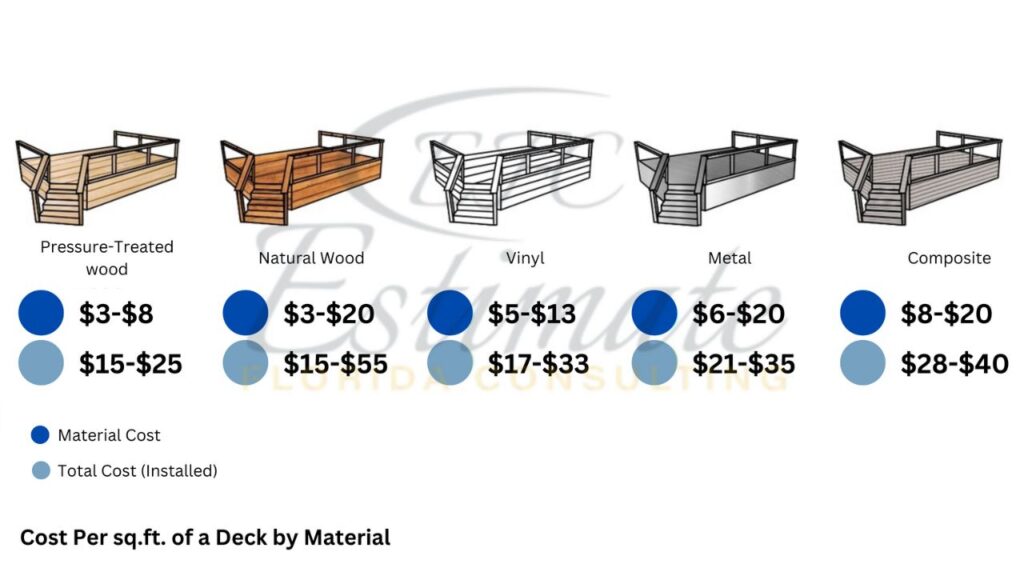
Material | Cost per Sq.Ft. (Materials Only) | Cost per Sq.Ft. (Installed) |
Pressure-Treated Wood | $3 – $8 | $15 – $25 |
Natural Wood | $3 – $20 | $15 – $55 |
Vinyl | $5 – $13 | $17 – $33 |
Metal | $6 – $20 | $21 – $35 |
Composite | $8 – $20 | $28 – $40 |
A pressure-treated wood deck typically costs between $3 to $8 per square foot for materials or $15 to $25 per square foot installed. Among the most affordable decking materials, pressure-treated wood, often pine, undergoes treatment with preservatives like CCA (carbon copper arsenate) under pressure to deter wood rot. Galvanized screws and fasteners are necessary to prevent rusting, and the wood may display a greenish hue from treatment. It requires painting or sealing during installation.
The cost of natural wood decking material ranges from $3 to $20 per sq.ft., with installation costs spanning $15 to $55 per sq.ft. Various materials such as bamboo, cedar, mahogany, redwood, and ipe are used. Bamboo decking, affordable and durable, requires minimal maintenance and offers a comfortable feel underfoot. Cedar, naturally resistant to rot and insects, may bleed through paint if not primed. Redwood boasts resistance to rot, insects, and water without chemical treatment, while mahogany and ipe are dense hardwoods prized for their durability. However, working with these hardwoods can increase installation costs. The table below details common natural woods used for decking and their associated costs:
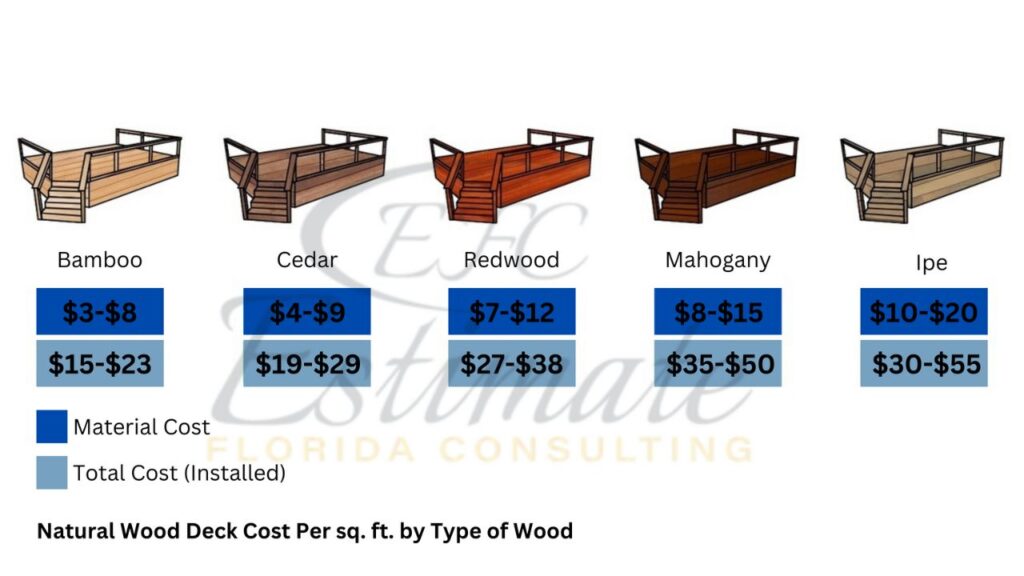
Material | Average Costs per Sq.Ft. (Materials Only) | Average Costs per Sq.Ft. (Installed) |
Bamboo | $3 – $8 | $15 – $23 |
Cedar | $4 – $9 | $19 – $29 |
Redwood | $7 – $12 | $27 – $38 |
Mahogany | $8 – $15 | $35 – $50 |
Ipe | $10 – $20 | $30 – $55 |
Understanding the average cost breakdown per square foot is crucial for setting realistic budget expectations. On average, deck building costs range from $20 to $50 per square foot, encompassing materials, labor, and additional features.
Breaking down material costs provides homeowners with a detailed understanding of where their budget is allocated. This includes expenses for lumber, fasteners, finishes, and any other materials necessary for the construction.
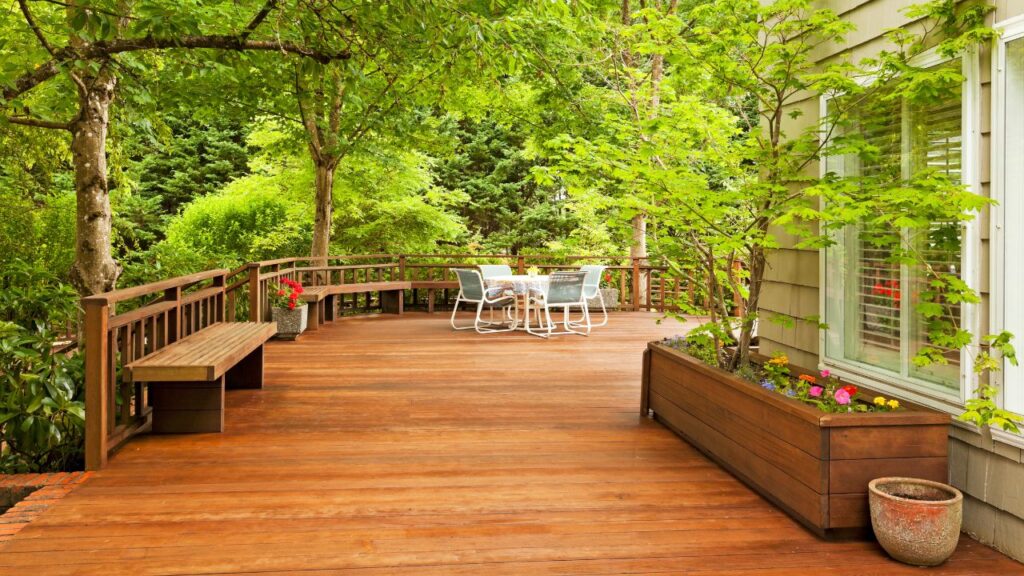
Labor expenses are a significant component of deck building costs. Knowing the average labor expenses in your region ensures transparency in your project’s overall cost structure. It also aids in evaluating quotes from contractors and understanding the value proposition.
Opting for budget-friendly materials doesn’t mean sacrificing quality. Many cost-effective options, such as pressure-treated wood or budget-friendly composite materials, offer durability and aesthetics without breaking the bank.
The decision between do-it-yourself (DIY) and professional installation is pivotal in cost-effectiveness. Assessing your skills, the complexity of the project, and the available time is essential. While DIY can save on labor costs, professional installation ensures quality and may be more time-efficient.
Timing your deck project can influence costs. Building during off-peak seasons might result in lower labor costs and better availability of materials. Additionally, planning during these times could potentially lead to faster project completion.

Considering sustainable materials aligns with environmentally conscious choices. Materials like composite and PVC, made from recycled materials, offer eco-friendly alternatives to traditional wood, contributing to a greener construction process.
Beyond initial construction, evaluating the long-term environmental impact of different materials is crucial. Choosing materials with minimal maintenance requirements and a long lifespan contributes to sustainable deck building practices.
Selecting a reputable contractor is paramount to a smooth and transparent building process. Researching and vetting potential contractors, checking reviews, and verifying licenses ensure you partner with a reliable professional.
Requesting detailed quotes and estimates from potential contractors helps in understanding the breakdown of costs. A transparent communication process with your contractor prevents unexpected financial surprises during the project.
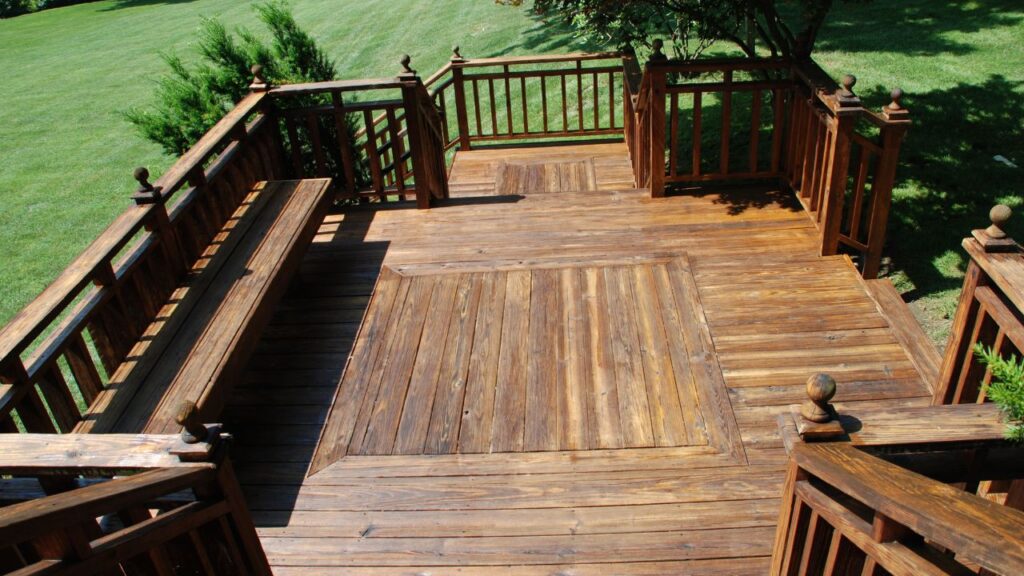
Ensuring transparency in costs is a shared responsibility between homeowners and contractors. Clear communication and documentation of all costs, including materials, labor, and additional expenses, prevent misunderstandings and disputes.
Before embarking on a DIY deck construction, evaluate your skills and the scope of the project. Simple projects like a small ground-level deck may be feasible for DIY, while more complex structures might warrant professional assistance.
Awareness of common DIY pitfalls, such as inaccurate measurements or improper material selection, ensures a smoother construction process. Learning from the mistakes of others enhances the likelihood of a successful DIY deck project.
Choosing budget-friendly materials for DIY projects is essential. However, it’s crucial not to compromise on quality. Opt for materials that balance affordability with durability to achieve a cost-effective and lasting deck.
Receive highly accurate estimates tailored to your zip code, giving you the edge to secure more projects. Upload your plans and start winning!
Staying updated on emerging materials is essential for homeowners seeking innovative features and benefits for their decks. New materials may offer improved durability, sustainability, or aesthetic options.
Exploring innovative features, such as smart lighting, hidden fasteners, and modular designs, adds a touch of modernity to your deck. These features not only enhance functionality but can also contribute to the overall appeal of your outdoor space.
Future-proofing your deck involves considering features and materials that will withstand the test of time. Choosing durable and versatile materials ensures your deck remains relevant and functional as design trends evolve.
Regular maintenance practices are key to extending the lifespan of your deck. Cleaning, sealing, and addressing minor repairs promptly prevent more extensive and costly damage over time.
Implementing measures to protect your deck against environmental factors, such as sealing against moisture or choosing materials resistant to pests, safeguards your investment and reduces long-term maintenance costs.
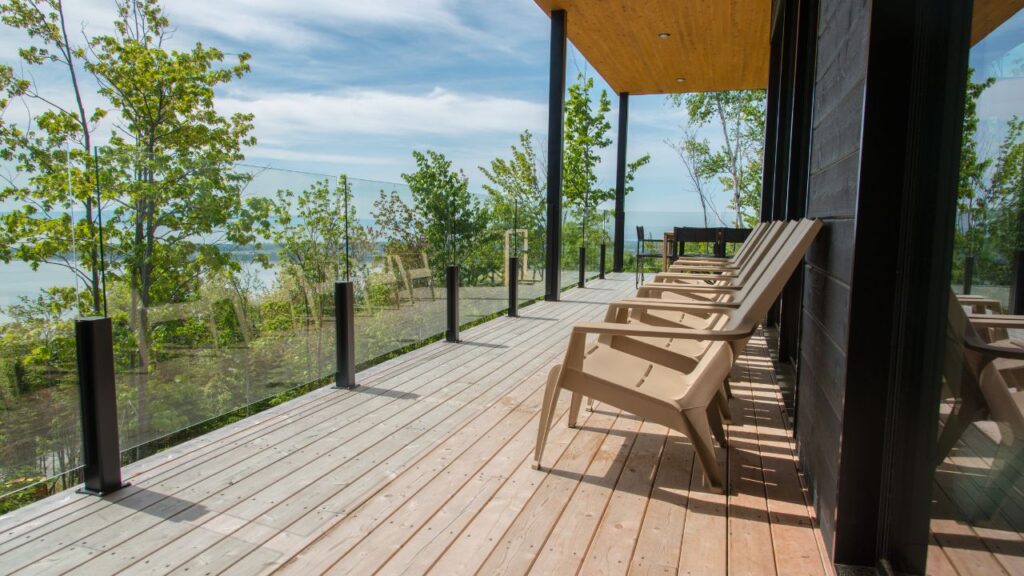
Beyond routine maintenance, occasional upgrades and enhancements can extend the life of your deck. Considering improvements that align with your lifestyle and design preferences ensures your deck remains a valuable and enjoyable space for years to come.
Adhering to local building permits and regulations is not just a legal requirement but also essential for the safety and longevity of your deck. Failure to comply with these regulations can result in fines, delays, or even the dismantling of your deck.
Ensuring compliance with local building codes prevents legal complications. Understanding and adhering to code requirements from the outset of your project mitigates the risk of facing regulatory challenges during or after construction.
Preventing legal issues is a proactive step in deck building. Being aware of and addressing potential concerns, such as property line violations or neighborhood covenants, prevents legal hassles that could arise after the completion of your deck.
Wood decks exude classic charm and warmth. However, they require regular maintenance to prevent deterioration from weathering, pests, and moisture.
Composite decking offers durability and low maintenance. It’s resistant to rot, insects, and warping, making it a popular choice for homeowners seeking a balance between aesthetics and practicality.
PVC decking is known for its longevity and resistance to moisture, insects, and UV rays. While it requires minimal maintenance, it tends to be more expensive than other materials.
Exploring alternative materials, such as aluminum or recycled plastic, offers unique benefits. Consider factors like cost, aesthetics, and maintenance requirements when exploring non-traditional deck materials.
The average cost ranges from $20 to $50 per square foot, depending on various factors.
Accurate deck lumber estimation can be achieved using online tools or by hiring professional estimators.
Factors include the size of the deck, choice of materials, labor costs, and additional features.
DIY can be cost-effective, but it depends on your skills and the complexity of the project.
Yes, sustainable options like composite and PVC offer eco-friendly alternatives to traditional wood.
Here I am going to share some steps to get a deck lumber estimate report.
You can send us your plan on info@estimatorflorida.com
Before starting your project, we send you a quote for your service. That quote will have detailed information about your project. Here you will get information about the size, difficulty, complexity and bid date when determining pricing.
Our team will takeoff and estimate your project. When we deliver you’ll receive a PDF and an Excel file of your estimate. We can also offer construction lead generation services for the jobs you’d like to pursue further.



561-530-2845
info@estimatorflorida.com
Address
5245 Wiles Rd Apt 3-102 St. Pete Beach, FL 33073 United States
561-530-2845
info@estimatorflorida.com
Address
5245 Wiles Rd Apt 3-102 St. Pete Beach, FL 33073 United States
All copyright © Reserved | Designed By V Marketing Media | Disclaimer